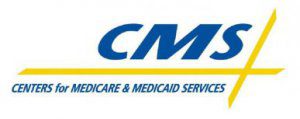
CMS at NAMD: The Call for Better Mental Health Treatment
November 19, 2018
Categories: Thought Leadership
 In the opening keynote session for the annual National Association of Medicaid Directors (NAMD) Conference, Health and Human Services Director, Alex Azar, focused heavily on the state of mental health in America. Specifically, he shared tragic stories of opioid addiction, staggering statistics on children with serious emotional disturbances, and the overall role Medicaid plays in addressing these critical public health issues.
In the opening keynote session for the annual National Association of Medicaid Directors (NAMD) Conference, Health and Human Services Director, Alex Azar, focused heavily on the state of mental health in America. Specifically, he shared tragic stories of opioid addiction, staggering statistics on children with serious emotional disturbances, and the overall role Medicaid plays in addressing these critical public health issues.
It was also in this speech where Mr. Azar announced the Centers for Medicare and Medicaid (CMS) expansion of its mental health treatment services—all with the goal of helping children and adults who have been diagnosed receive treatment earlier and in a better environment than before. The letter from CMS details existing and new opportunities for states for the ways in which they provide mental health services. By expanding this program, states can now authorize payment for short-term residential treatment with the commitment there will be quality care and upgrades to community-based services. But the expansion of services comes with a caveat.
 “CMS is committed to providing more treatment options for serious mental illness (SMI), including more inpatient and residential options. However, states must also demonstrate their ability to address challenges—such as effectively fighting the raging opioid epidemic,” said Mr. Azar in his opening remarks.
“CMS is committed to providing more treatment options for serious mental illness (SMI), including more inpatient and residential options. However, states must also demonstrate their ability to address challenges—such as effectively fighting the raging opioid epidemic,” said Mr. Azar in his opening remarks.
Clearly, this is an important area of focus for state Medicaid directors with nearly half of the program’s spending going towards treatment for enrollees with behavioral health conditions. Even with this large number, many adults who struggle with a SMI—thirty-five percent still do not receive treatment.
So, yes. CMS can lead the charge by expanding this program. But it will be up to states to determine how they will close the gap on the country’s pressing mental health issues. Maybe this is why there were three additional sessions at NAMD focused specifically on this topic.
We commend CMS and NAMD for their focus in this area and look forward to seeing how this program helps states better the care CMS help better the care provided for a once undervalued field of healthcare. This step in the right direction will positively impact communities nationwide.







